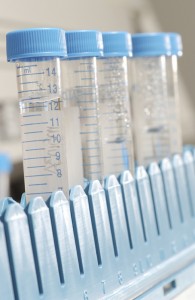What is bacterial vaginosis?
All women have different types of bacteria in their vagina, most of which are friendly and totally harmless. With bacterial vaginosis, some of the bacteria grow and multiply excessively so that more bacteria are present than normal, and the numbers of the friendly bacteria are decreased. So bacterial vaginosis is not an infection caught from your partner – it is due to an increase in the bacteria that are normally present in the vagina and a decrease in the proportion of friendly vaginal bacteria.
Things you can do that help
- If you have an intrauterine contraceptive device (‘coil’) and bacterial vaginosis is very troublesome, consider changing the coil or having it removed.
- Stop smoking, as smoking seems to be linked with bacterial vaginosis.
65% of women with bacterial vaginosis have no symptoms”
Many women have no idea they have bacterial vaginosis. It causes no discomfort or pain. If this is the case why should you be concerned?
Women with bacterial vaginosis:-
- Are more likely to have a miscarriage at early and late stages of pregnancy.
- Are more likely to deliver their babies prematurely.
- Have a higher risk of pelvic inflammatory disease.
- Have a reduced chance of conceiving.
- Have a higher risk of getting HIV.
Many women assume that any form of vulval or vaginal irritation or soreness is due to Thrush, but this is not necessarily the case. Equally, the temporary response to over-the-counter remedies does not confirm that the symptoms were caused by Thrush. The majority of women with bacterial vaginosis do not have discomfort or irritation, but the commonest symptoms associated with BV:
- A fishy smell in the genital area which may be worse after sex or during your period.
- There is normally a discharge, watery and greyish-white in colour.
Why women get bacterial vaginosis
Using bubble bath and other perfume type things in your bath can make a bacterial imbalance in the vagina more likely. Some women douche the vagina (flushing the vagina with antiseptic or soapy liquid) because they think it is hygienic, but the opposite is true. The vagina is very effective at cleaning itself and douching makes infections more likely, not less. Some research suggests that bacterial vaginosis is more likely in women who smoke, or who eat a high-fat diet.
How do I find out if I have bacterial vaginosis?
The safest and surest way is to consult a medical professional. Certainly if you have any of the symptoms above it is advisable for you to be tested for BV. If you are considering getting pregnant it would be prudent to ensure that you do not have BV. There are commercially available tests for bacterial vaginosis, however, at this time we cannot attest to their effectiveness.
Austin Ugwumadu has a special interest in this area. You can ask your doctor for a referral to his clinic at St Georges Hospital in Tooting, London or you can see him privately at Parkside Hospital beside Wimbledon Common, London or Newlife clinic in Epsom, Surrey.

